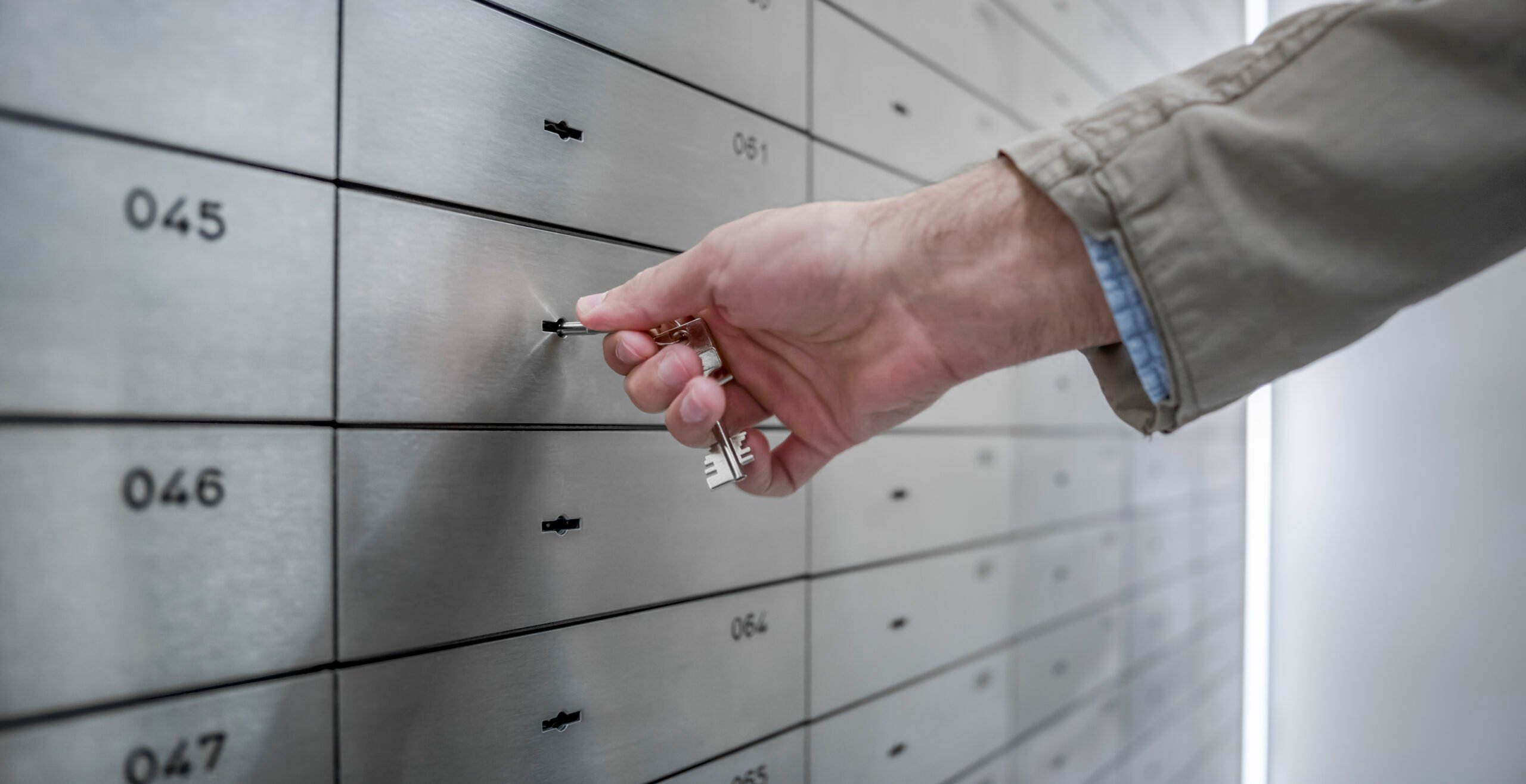Do you have valuable items or important documents that would be devastating to lose due to theft or disaster?
Safe deposit boxes have long been a trusted method for safeguarding family heirlooms, legal documents and irreplaceable treasures. These small storage boxes are typically housed in the fortified vaults of banks and credit unions, and they provide a level of security that far surpasses that of most home safes.
If you’re considering storing your valuable items in a safe deposit box, here are nine things you need to consider.
Guaranteed Acceptance Life Insurance
Coverage options starting at $9.95 a month!
Guaranteed acceptance life insurance without medical exams, health questions, or rate increases.
1. Safe Deposit Box Costs Vary Depending on Size & Location
Financial institutions rent safe deposit boxes to people for anywhere from $15 to $350 or more per year depending on box size and location. Banks may offer you the option to pay monthly or annually.
2. Safe Deposit Boxes are Ideal for Storing Many Items
Because you can only access safe deposit boxes when the bank is open (or by appointment only at some institutions), they’re ideal for storing important items that you don’t need to access frequently, such as:
Originals of Personal Identification Documents:
- Birth certificates
- Social Security cards
- Marriage certificates
Originals of Legal Documents:
- Property deeds and titles
- Contracts
- Copies of wills
- Power of attorney documents
Financial Documents:
- Bank account information
- Investment certificates
- Stock and bond certificates
Valuables:
- Jewelry
- Rare coins and stamps
- Gold bars or coins
- Family heirlooms
Backup Data:
- External hard drives or USB drives with backup data
- Digital copies of important documents
Other Important Documents:
- Military records
- Diplomas and academic records
3. But They Aren’t Right for Storing Everything
Safe deposit box rental agreements outline items you can’t keep inside a safe deposit box. For example, firearms, illegal substances, perishable goods and hazardous materials aren’t allowed.
Cash is best kept in a bank account rather than in a home safe or safe deposit box, so that it’s protected by FDIC insurance and possibly earns interest.
Additional items that are better kept in a safe location inside your home for quick access include:
- Letters of instruction or other end-of-life documents
- Medical directives
- Insurance policies
- Spare keys
Related: 13 Step Checklist to Get Your Aging Relative’s Affairs in Order
4. Safe Deposit Boxes Have Two Keys
The guard key is kept by the bank and the second key is given to the customer, and both keys are required to open the box. If a customer loses their key, the bank can drill the box and change the lock at the customer’s expense.
5. Access for a Trusted Person is Important to Consider
Banks only allow designated people to access safe deposit boxes, so it’s important to consider what would happen if you’re no longer able to go to the bank or if you pass away. If you haven’t granted anyone access to your safe deposit box, your family may need a court order to access the box.
You can save your loved ones a lot of time and headache by giving a trusted person access to your safe deposit box. You will probably need to go to the bank with your trusted person, both show ID, and fill out paperwork to grant access.
Related: 8 Tips For Talking About Final Wishes With Your Loved Ones
6. They’re Safe But Not 100% Impenetrable
The recent wildfires in Los Angeles tore through communities, burning down tens of thousands of structures—including banks.
Safe deposit boxes are fire and water resistant but not fireproof and waterproof. When the temperature inside a vault rises to 450 to 500 degrees Fahrenheit, paper documents will ignite. And when the temperature climbs higher, jewelry, coins, and other metal items will melt.
You can help protect your items against water damage by placing them in water-safe plastic bags or containers.
7. Security Measures at Home are Important
In case of a break-in at your home, don’t keep identifying information on or near your safe deposit box key, such as the bank’s name and the box number.
8. Insurance Could Be a Good Idea
Banks don’t know what’s inside safe deposit boxes, and they don’t insure the contents of safe deposit boxes or reimburse owners if contents are destroyed. That’s why it’s important to consider adding a rider to your homeowner’s insurance policy to cover the items in your safe deposit box or to purchase a separate policy from a company that writes insurance on safe deposit box contents.
9. Don’t Just Lock It and Leave It
Safe deposit boxes are one of the safest places you can keep your valuables, but it’s still important to check in from time to time. Consider annually reviewing the contents of your safe deposit box as well as who can access your box.
Related: 5 Essential Estate Planning Considerations
Colonial Penn is here for you!
Colonial Penn has specialized in making life insurance simple and accessible by offering it directly to consumers since 1957. Click here to learn more.





